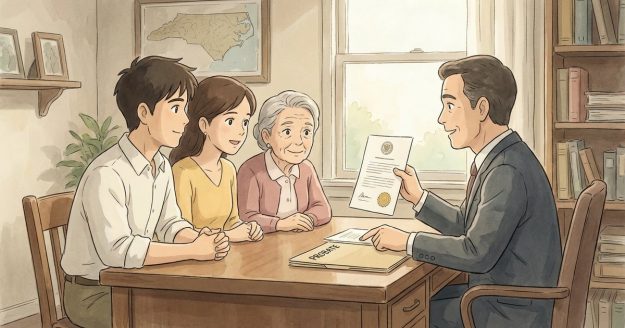Will fixing the death certificate now affect a future estate case my child may open?
Will fixing the death certificate now affect a future estate case my child may open? – North Carolina Short Answer Usually, fixing a North Carolina death certificate now helps—not hurts—a future estate case. Probate in North Carolina is handled through the Clerk of Superior Court, and the clerk can accept several types of proof of…











